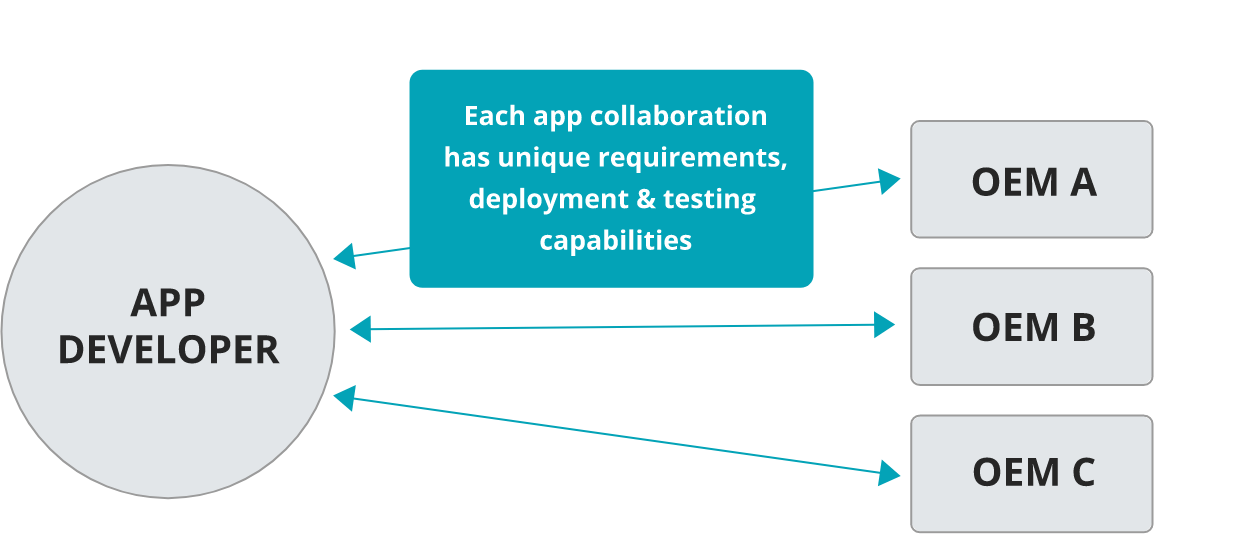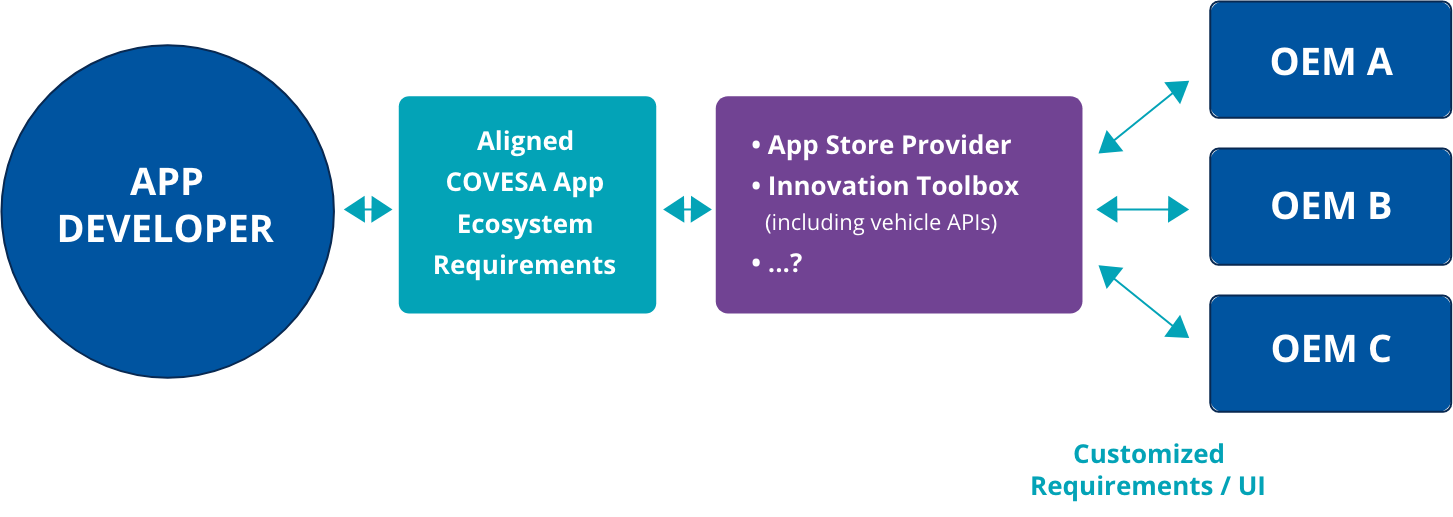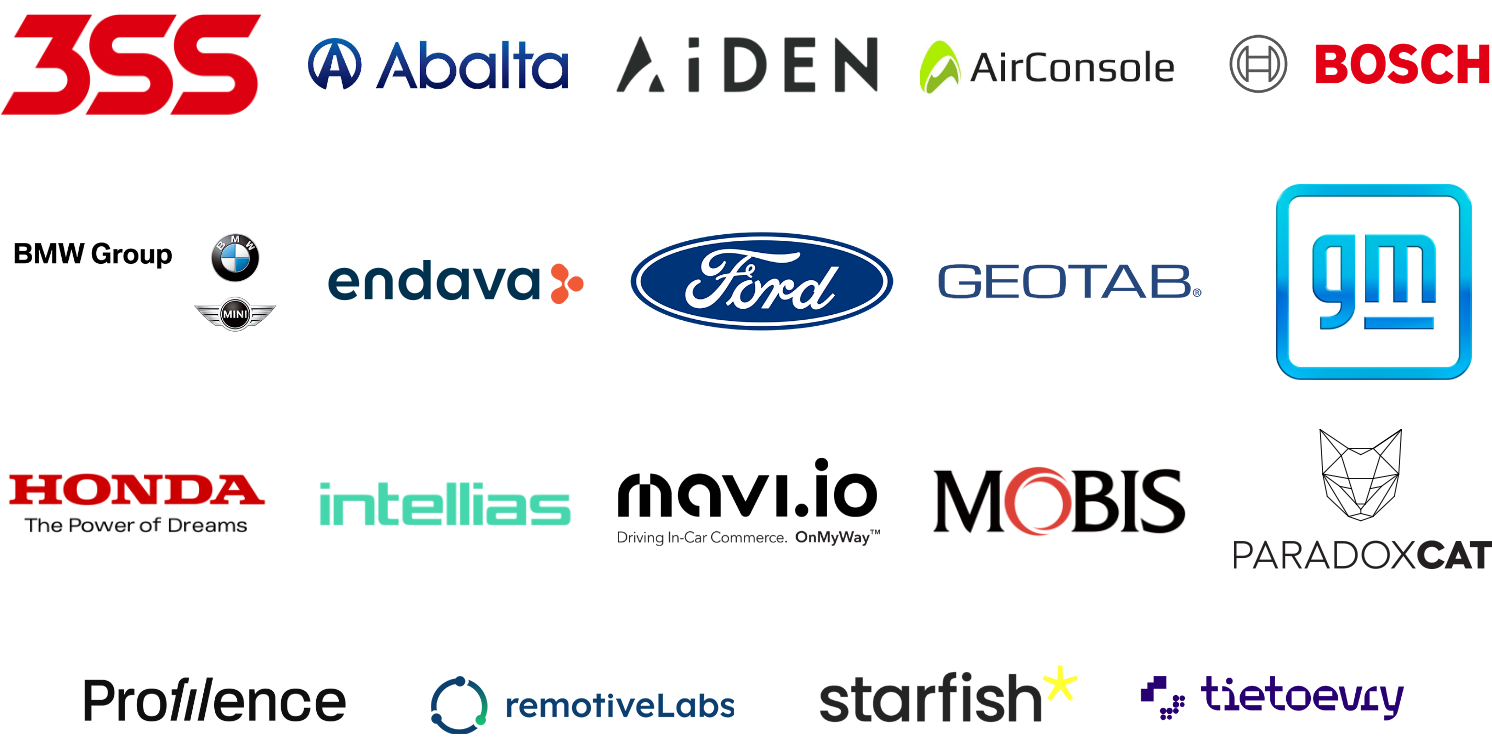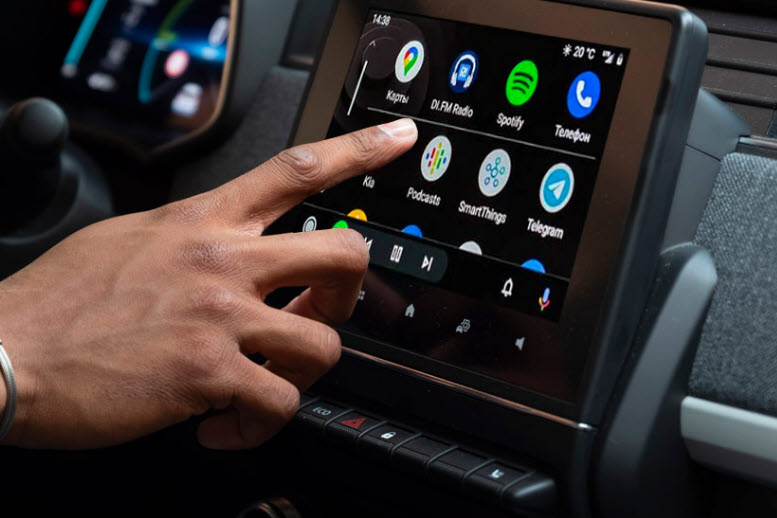Automotive AOSP App Framework Standardization

Automotive AOSP App Framework Standardization
A collaboration that minimizes fragmentation in automotive to facilitate and attract a wide variety of apps that may be deployed on vehicles from any manufacturer. This is done by identifying, specifying, and implementing the necessary shared components such as notifications, emulators, app store, etc. With mutual requirements and guidelines for APIs, and reference implementations, costs can be reduced and time-to-market can be sped up enabling development focused on innovation.

Why is Automotive AOSP framework standardization and App Framework needed?
A rich catalog of apps for infotainment systems is a critical element in allowing end-consumers to access their favorite digital content in the car, as well as to create new experiences.
The traditional approach to app development for vehicles can and should be made easier for app developers.
By adopting common standards for the vehicle Android Open Source Project and reducing the gaps between automotive systems not using Google Automotive Services (GAS) and those using GAS, the COVESA AOSP App Framework Standardization group counteracts fragmentation and facilitates the development of apps for a vibrant automotive ecosystem.

Innovation and Partnership Manager
FORVIA
Traditional Approach

The traditional approach is not attractive for app developers and does not enable innovation and rich customer experiences. For OEMs, it also reduces speed and adds cost.
The Automotive AOSP App Framework Standardization Expert Group is creating shared components, resulting in several ecosystem benefits:
| Enabling app innovation and rich experiences | |
| Frictionless onboarding and testing for app developers | |
| Building a cross-OEM app ecosystem | |
| Avoid fragmentation |
How to counteract fragmentation in the AOSP app ecosystem?
App developers shouldn’t have to develop unique apps, with specific requirements and different deployment patterns for each OEM. Such a traditional approach is not only difficult to scale for app developers, but it also causes specific development work within each OEM.
COVESA App Ecosystem Approach

A collaborative approach unifying the majority of requirements in cross-OEM app ecosystem (i.e., a white label app store will speed up development and reduce costs for all parties involved).
Focus topics for efficient AOSP app development
The Automotive AOSP App Framework Standardization Expert Group enables a “White Label App Store” for Android by identifying and closing gaps between AAOS with/without GAS. The group proposes, specifies, and develops open source code as solutions/alternatives.
Projects and Workstreams
The expert group continuously reviews open areas in Android Automotive (Automotive AOSP) to identify projects to minimize fragmentation and add them to the group backlog. The group is addressing five primary workstreams identified as current gaps in Automotive AOSP.
- UnifiedPush Notifications: This project delivered an open source push notification service specification and implementation that may be run by OEMs, Tier 1, etc. Running this service enables third parties to provide push notifications in AOSP. This was done by updating the Unified Push specification and implementation. Deliverables can be found on the project page.
- Emulator: Automotive AOSP still represents a niche market for Android App developers, and the ecosystem still shows some fragmentation between GAS and non-GAS ecosystems. It is important to provide standardized distribution channels and development environments to reduce the friction for app developers targeting non-GAS environments. This workstream is developing an emulator to test apps in an automotive representative environment, an important tool to reduce friction among app developers.
- Data: This workstream harmonizes AOSP vehicle properties with the Vehicle Signal Specification to reduce the number of custom/extended vehicle properties. The group will explore and propose solutions to permit and enable third-party app developers to access and utilize vehicle data safely and securely, creating industry value. They will propose and identify requirements for external data services and address the anonymity of data and consent management.
- COVESA SDK: Code developed in the various workstreams is combined as a collection of all “COVESA libraries,” allowing third-party apps to access automotive features in a way that is agnostic of manufacturer and model. This code is available in Open Source Repo and is open for contributions.
- Entertainment: This workstream reduces access barriers for content providers by standardizing the technical implementation in the car (e.g., geolocalization).
For ongoing projects and workstreams with regular meetings, review the COVESA community calendar.
The expert group continuously reviews open areas in the standards of Android Automotive to tackle and add them to the group backlog.

Strategic Connectivity Technologies
General Motors
Member Contributors

Chairs
BMW – Sabine Hofschen
Forvia – Gabriel Gautron
General Motors – Richard Fernandes
Get Involved
COVESA Spotlights
Founded Irystec Software Inc. & served as CTO, and later CEO – a pioneer in the field of Perceptual Display/Image Processing for both consumer and automotive markets that was acquired by Faurecia (Forvia) in 2020. Post acquisition joined Forvia as Global Innovation & Ecosystems Director managing startups internally & externally. Prior to founding Irystec, Tara was awarded for product management of Operations and Maintenance Center (OMC) in the Telecommunication industry, all the way from analysis and design to deployment in a 3GPP/4GPP mobile network with 20 million subscribers. Tara has been recognized as the Entrepreneur of the Year finalist in 2019 by EoY Canada, awarded the Innovation PACE award for most innovative product introduced to the road in 2021 by Automotive News and founder of most promising startups in Canada in 2018 by CIX. She holds a bachelor’s degree in Computer Software Engineering, a master’s degree in Artificial Intelligence and a Ph.D. in Image Processing and Computer Vision from Vienna University of Technology. Tara is the Canadian Committee member for International Committee for Illumination (CIE) and the Marketing Vice-Chair for the Society of Information Displays (SID).

Consumers expect the absolute best, safest, and problem-free content and experiences integrated into their digital world from their phones, smart home devices, computers, and electronic devices immediately as they become available. Why would they expect less from their vehicles? The reality today is not quite so simply in the Automotive industry and the vehicle’s data space is often messy and disconnected...

Collaboration to unify guidelines and interoperability for vehicle applications, primarily within the Android open source environment (AOSP). With mutual requirements, guidelines for APIs and reference implementations we can reduce cost and speed up time to market while enabling app developers to develop once and then easily deploy to many OEMs...
